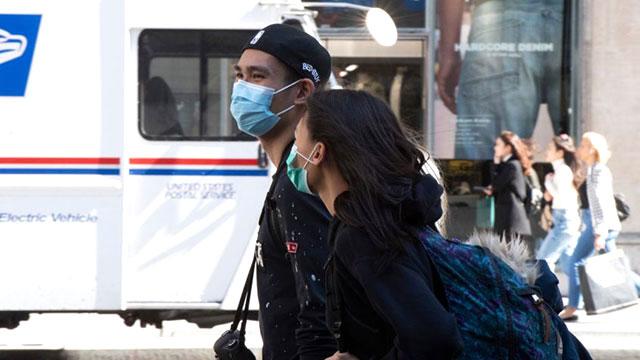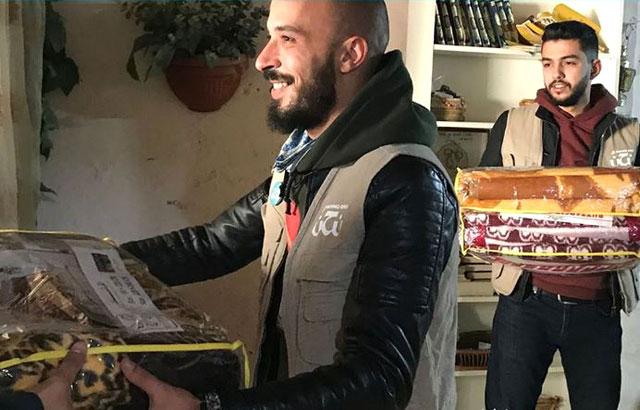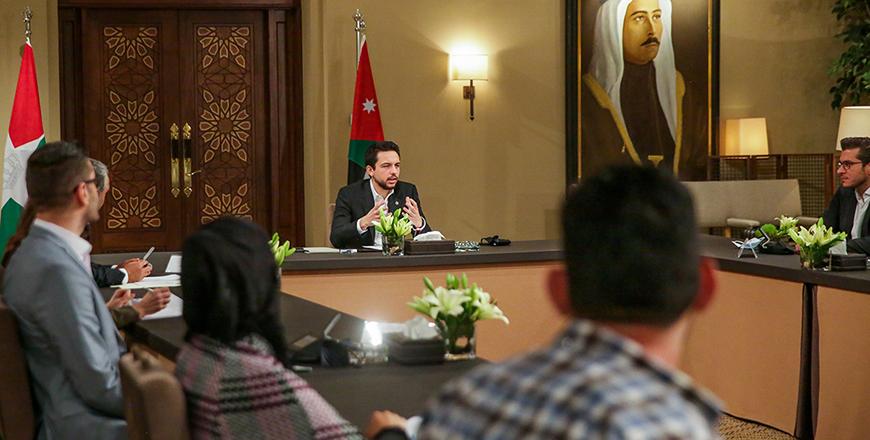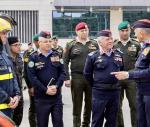You are here
Compact launched to boost role of youth in humanitarian field
By JT - Jun 29,2020 - Last updated at Jun 29,2020
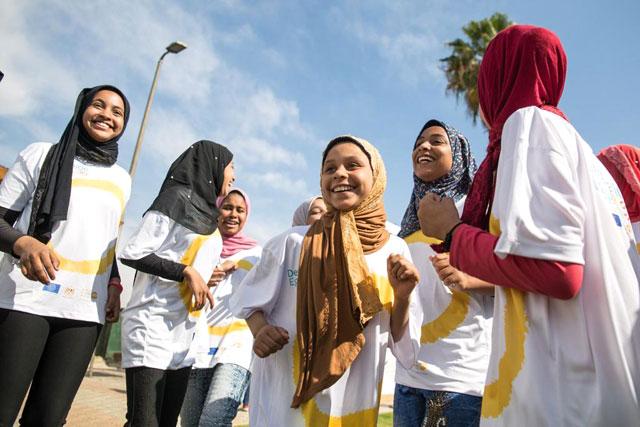
The Compact for Young People in Humanitarian Action was launched as a ‘concrete and deliberate step by the humanitarian community to work with and for young people’ (Photo courtesy of UNFPA Jordan)
AMMAN — UNFPA Jordan, in cooperation with the Ministry of Youth and in coordination with UNHCR, UNICEF, UNDP and Norwegian Refugee Council (NRC), held an event on Monday to launch the Compact for Young People in Humanitarian Action in Jordan.
The high-level event aimed at facilitating partnership-building for young people in humanitarian action through introducing the compact as a collective framework and a formal agreement among members and youth as an accountability mechanism in each of the key action areas of the compact, according to a joint statement shared with The Jordan Times.
During the event, the Compact for Young People in Humanitarian Action for humanitarian actors in Jordan was officially launched and the Compact Guidance COVID-19: Working with and for Young People was introduced.
The event also drew attention to good practices in the COVID-19 response in working with and for youth as “indispensable stakeholders and decision makers who are solution-oriented and who drive change and strengthen resilience”. Moreover, the youth humanitarian and development agenda and the implications of COVID-19 on positive youth development were discussed, according to the statement.
During the launch, Minister of Youth Fares Braizat said: “The COVID-19 pandemic has shown an urgent need to regulate and organise volunteer work in the Kingdom by consolidating and coordinating the voluntary efforts of individuals and institutions alike, in order to achieve high-standard, efficient humanitarian work”.
“The ministry had discussed youth empowerment through voluntary work with both the Crown Prince Foundation and UNICEF by providing specialised training in various voluntary areas through the ‘Nahno’ platform, which provides voluntary services for youth at highly professional standards, in line with public safety guidance,” he added in the statement.
The minister encouraged youth to register with the “Nahno” platform for voluntary work, calling on them to be “do-gooders, as you have always been”.
Also, Braizat expressed deep appreciation for the strategic partnership between the ministry and the NRC and various UN agencies, namely UNFPA, UNHCR, UNICEF and UNDP.
By becoming a member of the compact, the organisations commit to and are accountable for “transforming humanitarian action for and with young people to prevent and end conflict, safeguard human rights and the rule of law and invest in young people now and in the future, leaving no one behind”, the statement read.
The compact members acknowledge that young people have the skills, capacities and resources to prevent, prepare for, respond to and recover from humanitarian situations and that supporting and working with them will help improve humanitarian effectiveness and efficiency and strengthen resilience of communities.
Anders Pedersen, UN Resident and Humanitarian Coordinator in Jordan, pointed to the current “unprecedented challenges, where all of us should stand together to battle the COVID-19 pandemic”.
“Today, more than ever, we need to do more to provide platforms and opportunities for young people to tap into their talents as we tackle the pandemic. And this compact is an opportunity for the youth of Jordan to lead and engage in humanitarian work to help address the crisis and its aftermath,” added Pedersen in the statement.
Head of the UNFPA Jordan office Enshrah Ahmad emphasised the need to ensure that COVID-19 response plans are “sensitive to adolescent and youth-specific healthcare needs and rights, including reproductive health, mental health, and psychosocial support”.
She also said that the UNFPA in Jordan is “committed” to the compact agenda for advancing youth development in humanitarian settings and in crises.
Furthermore, Jordan Country Director for the Norwegian Refugee Council Muriel Tschopp commented: “All too often, youth affected by displacement and other emergencies lack the support they need. The youth compact seeks to change this. Our goal is to empower young people so that no matter what their circumstances, they have both the support and tools they need to build a better future and contribute positively to their community. This means putting youth at the centre of our programming and strengthening youth-focused services.”
“We welcome this joint commitment made under the Compact for Young People in Humanitarian Action,” said Tanya Chapuisat, UNICEF Jordan Representative.
“Jordan has one of the youngest populations in the world, providing a wealth of potential. Through this innovative partnership, we can better address young people’s needs and ensure that they can meaningfully participate in the humanitarian response,” Chapuisat added.
Sanad Nuwwar, a youth activist in Jordan who also moderated the discussion, expressed his “positive impression” of the compact. “The government is on the right track to have adopted this compact, although the humanitarian crisis that we are going through is unprecedented. Yet, COVID-19 showed us all how much we are in need of such a compact, so we the youth are enabled to address such pandemics and disasters,” he said.
The compact builds on processes led by and for young people including the Global Refugee Youth Consultations, the Doha Youth Declaration on Transforming Humanitarian Aid and the Security Council Resolution 2250 on Youth, Peace and Security; all of which emphasise the importance of meaningfully engaging young people on local, national regional and global levels, according to the statement.
In the light of the COVID-19 crisis, the Compact for Young People in Humanitarian Action has been mobilised to provide its guidance through COVID-19: Working with and for Young People to all of its global members, humanitarian activists and youth-led organisations.
The Compact for Young People in Humanitarian Action was launched, under the leadership of IFRC and UNFPA, as a “concrete and deliberate step by the humanitarian community to work with and for young people”. More than 50 humanitarian partners, including governments, UN entities, international and local NGOs, and major youth organisations and networks, are now members, the statement concluded.
Related Articles
AMMAN — The Ministry of Youth, UNFPA, UNDP and UN Women, in collaboration with the National Youth Peace and Security 2250 Coalition in Jorda
AMMAN — Prior to and during the coronavirus crisis, the Ministry of Youth has been working on numerous projects and activities to engage you
AMMAN — HRH Crown Prince Hussein on Tuesday commended young Jordanians’ voluntary initiatives, especially amid the coronavirus disease (COVI



